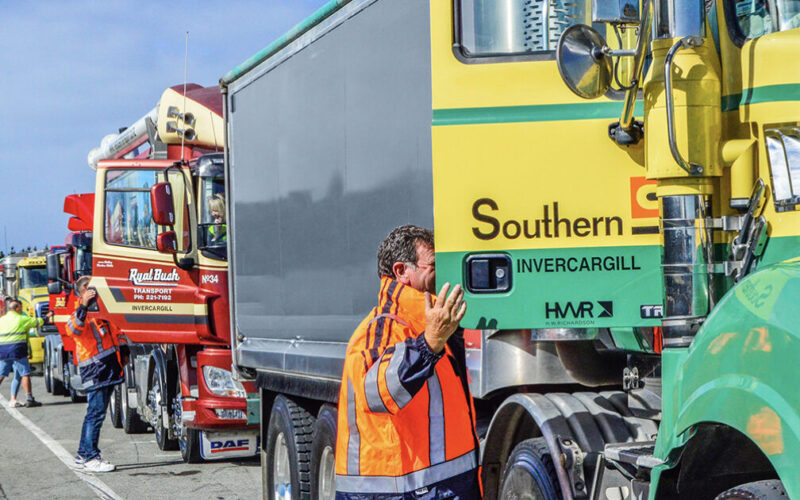The head of one of the country’s largest transport groups is urging the education system to promote vocational training and careers to help address a nationwide truck driver shortage.
Anthony Jones, the chief executive of Invercargill-based HW Richardson Group, says the national rural transport company, which employs 2500 staff, is short about 75-80 drivers while the contracting side of the business needs a similar number.
“Where have all the people gone?” asks Jones.
He says jobs as drivers, mechanics and other transport-related vocations were highly technical, important careers, but the education sector traditionally promotes tertiary-based academic careers, viewing vocational careers as low-skilled.
“It’s a stigma applied incorrectly.”
The worker shortage is encouraging competing transport operators to lure staff with higher wages and conditions, but Jones says that is not a sustainable solution.
He says his group promotes lifestyle, health and safety, the quality of gear and work conditions to attract and retain staff while also targeting students at Southland high schools.
“We want to show them that there are great career paths and lifestyle.”
The company runs its own driver training scheme, the HWR Driving and Assessment programme, which aims to fill vacancies and upskill staff.
In 2021 the 20 trainers completed more than 2750 assessments, spanning both in-cab assessments and licencing and everything from forklifts to various heavy classes.
“We want to show them that there are great career paths and lifestyle.”
Anthony Jones
HW Richardson Group
Each assessment and licence costs $3000 and while not every graduate will continue working for Richardsons, Jones says the overall benefits outweigh those issues.
Solving the issue of an ageing driver workforce requires lateral thinking.
Jones says some drivers nearing retirement no longer want to drive long line-haul routes so Richardsons moves them to their concrete business, keeping them gainfully employed driving short distances while retaining their skills and filling a crucial role.
Jones says another attribute the company invests heavily in is health and safety, using driver technology such as fatigue monitors and cameras to make the job safer.
Promoting the lifestyle of working in rural communities can be a challenge but Jones, who was born and bred in Australia and worked for much of his life in Sydney, has experienced first-hand the benefits of such a shift.
Moving to live and work in Invercargill he has found the lifestyle relaxed and the locals are nterested in people.
Jones says while those rural community attributes need to be promoted, staff moving to work in rural communities also need support and to feel valued.






